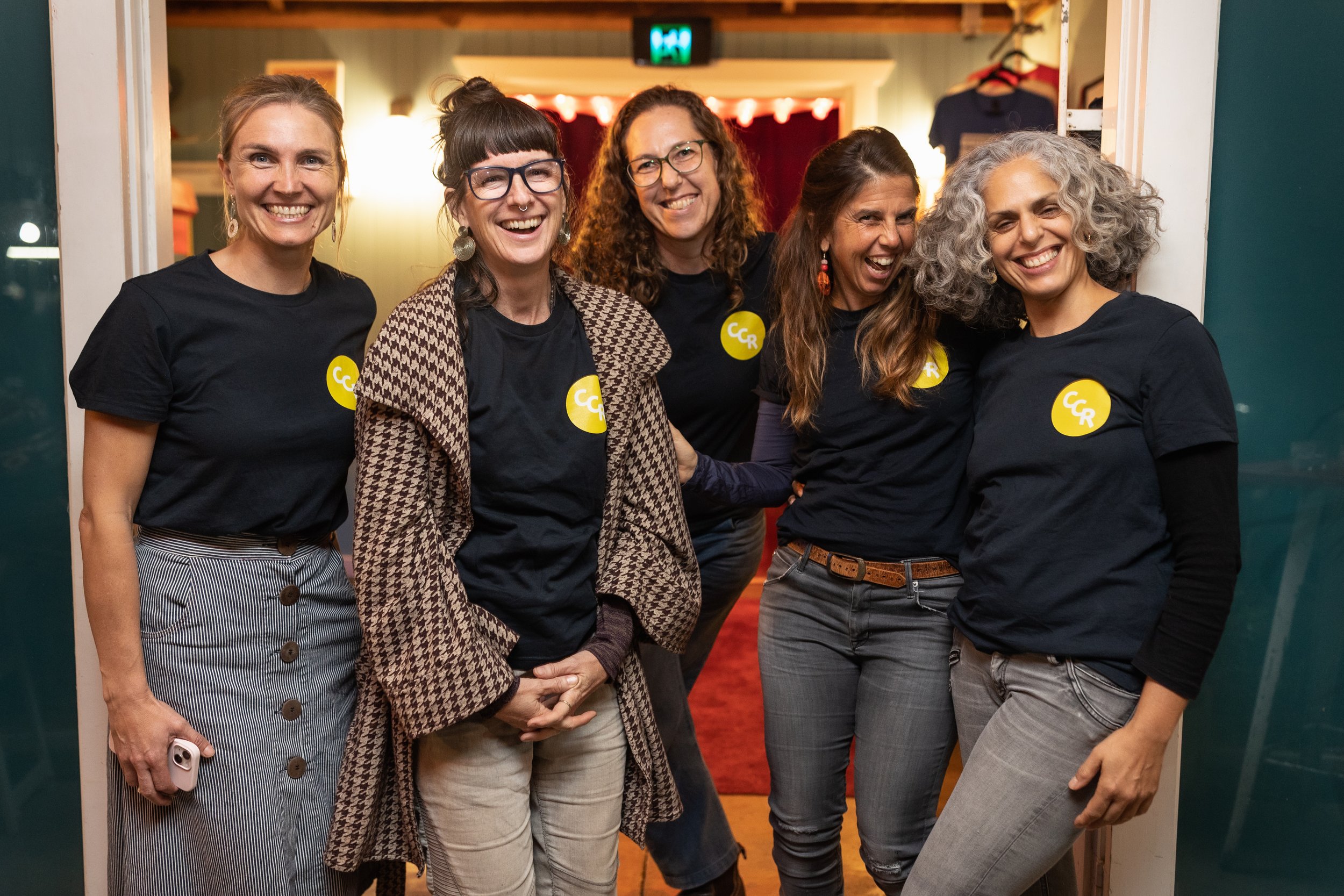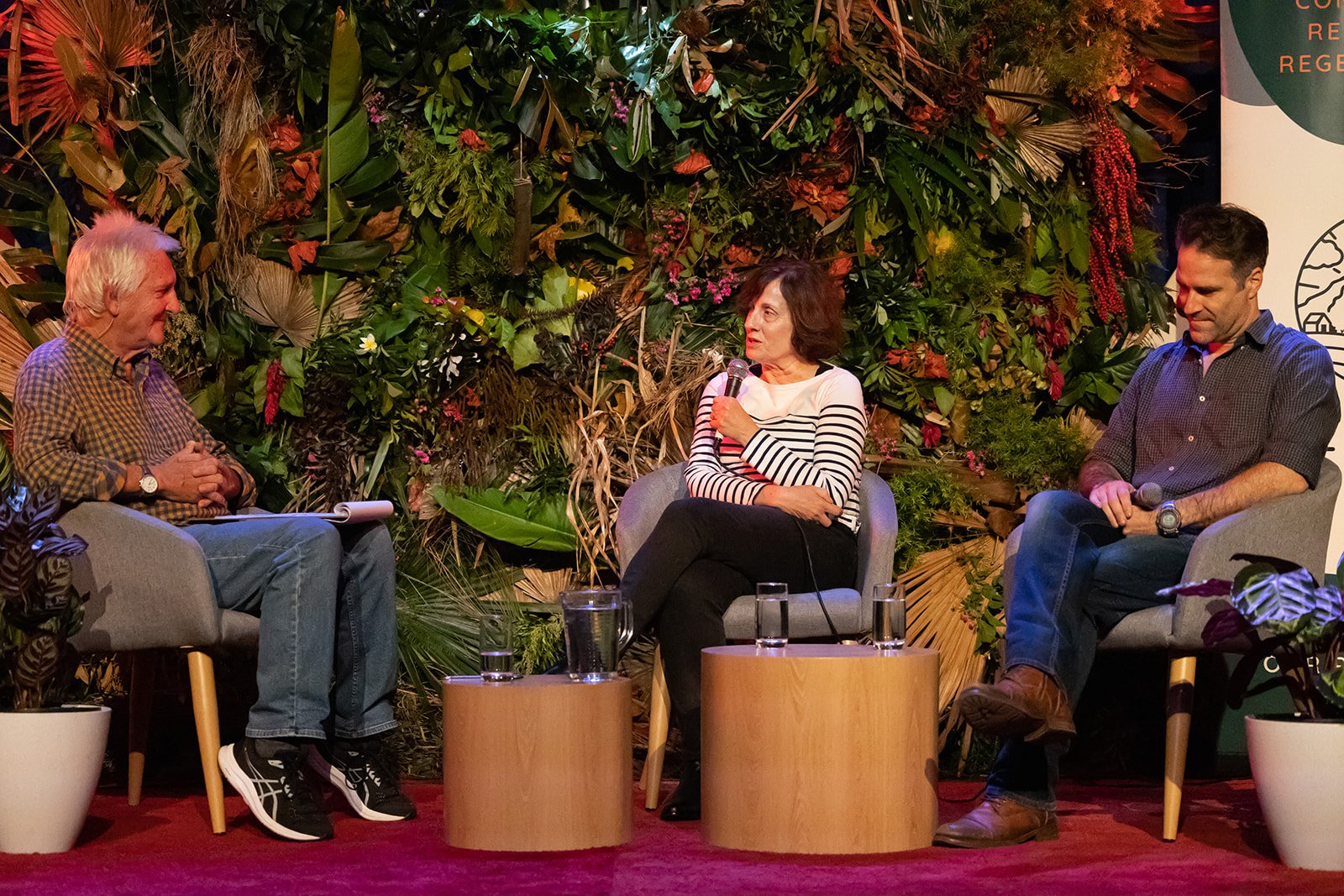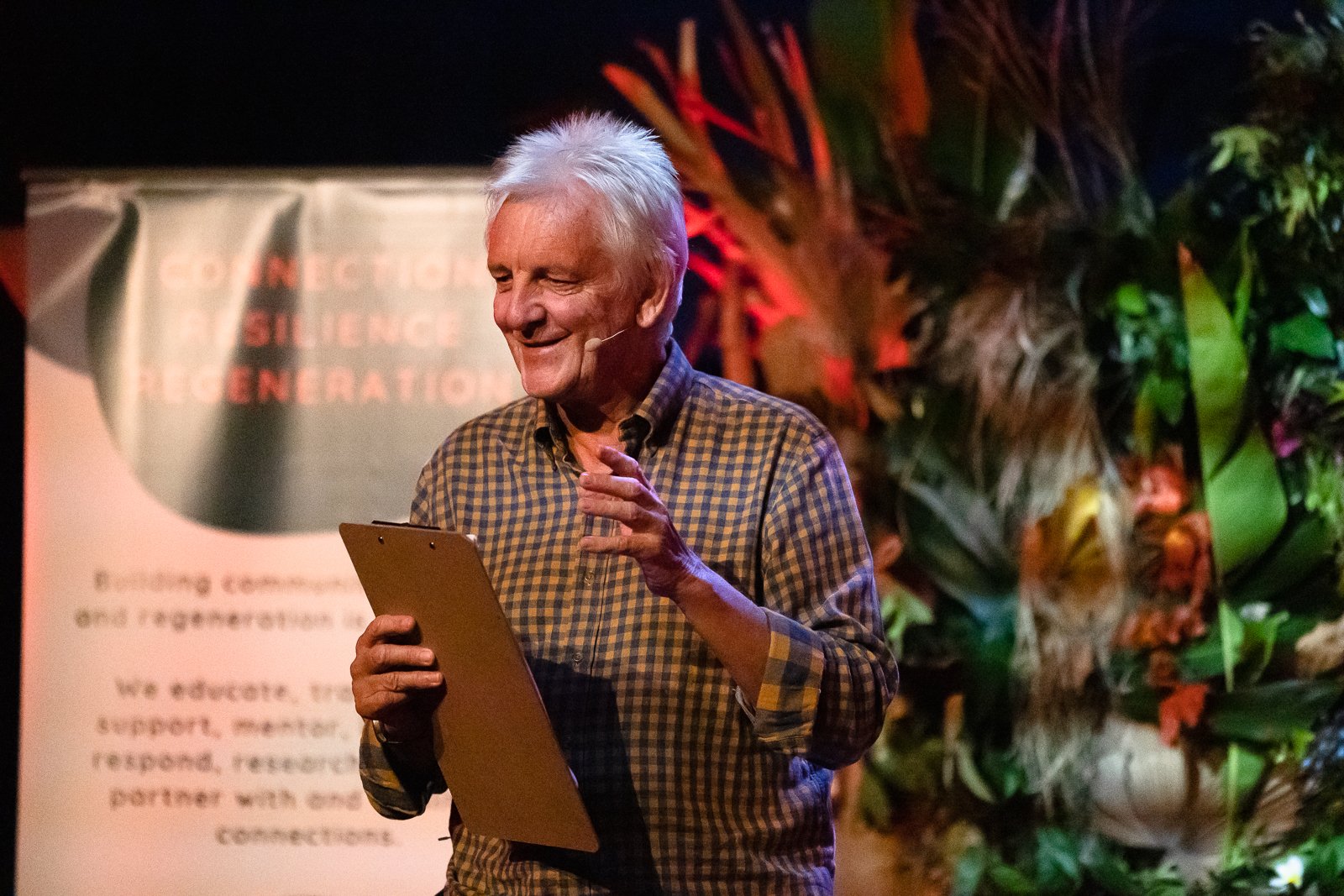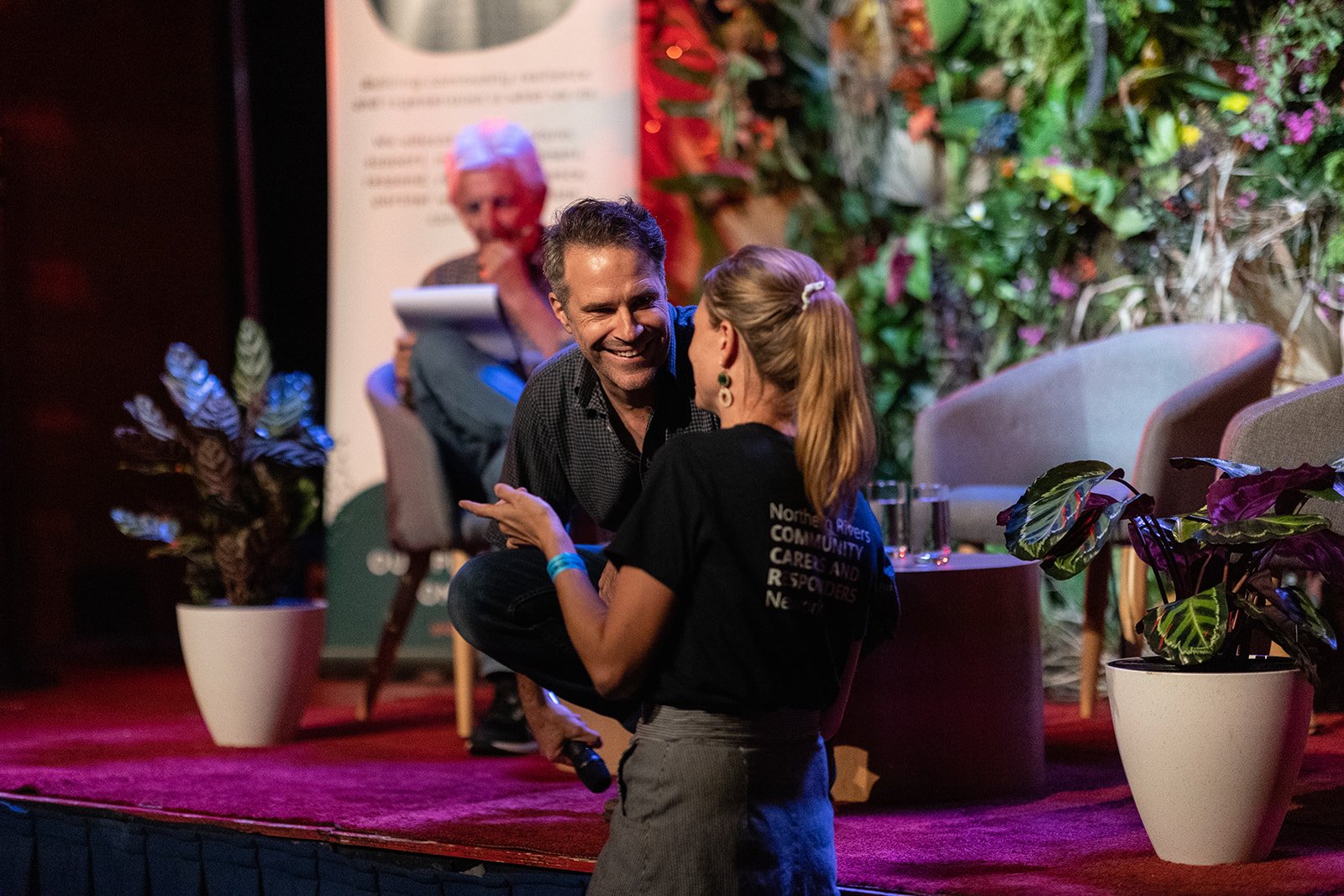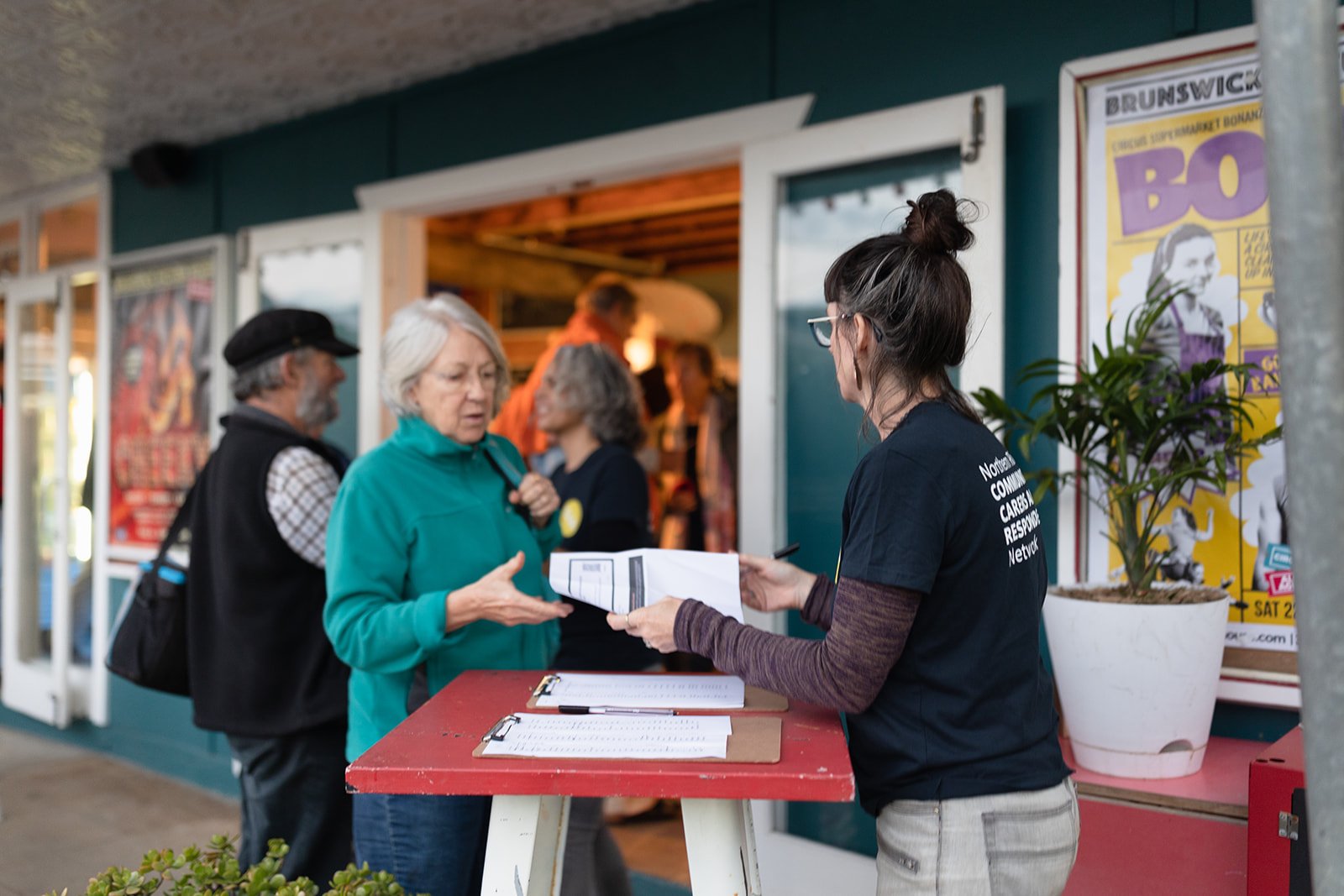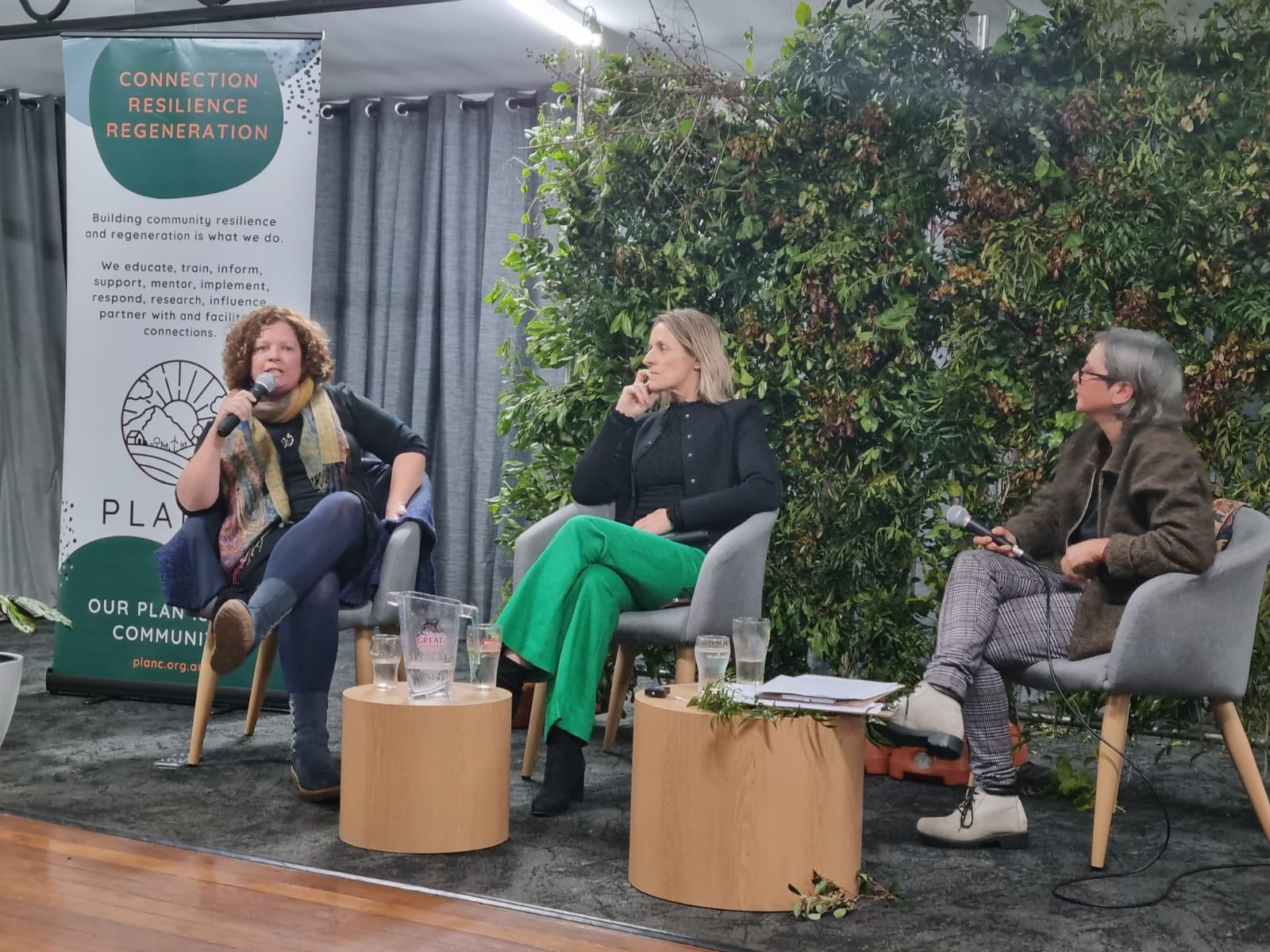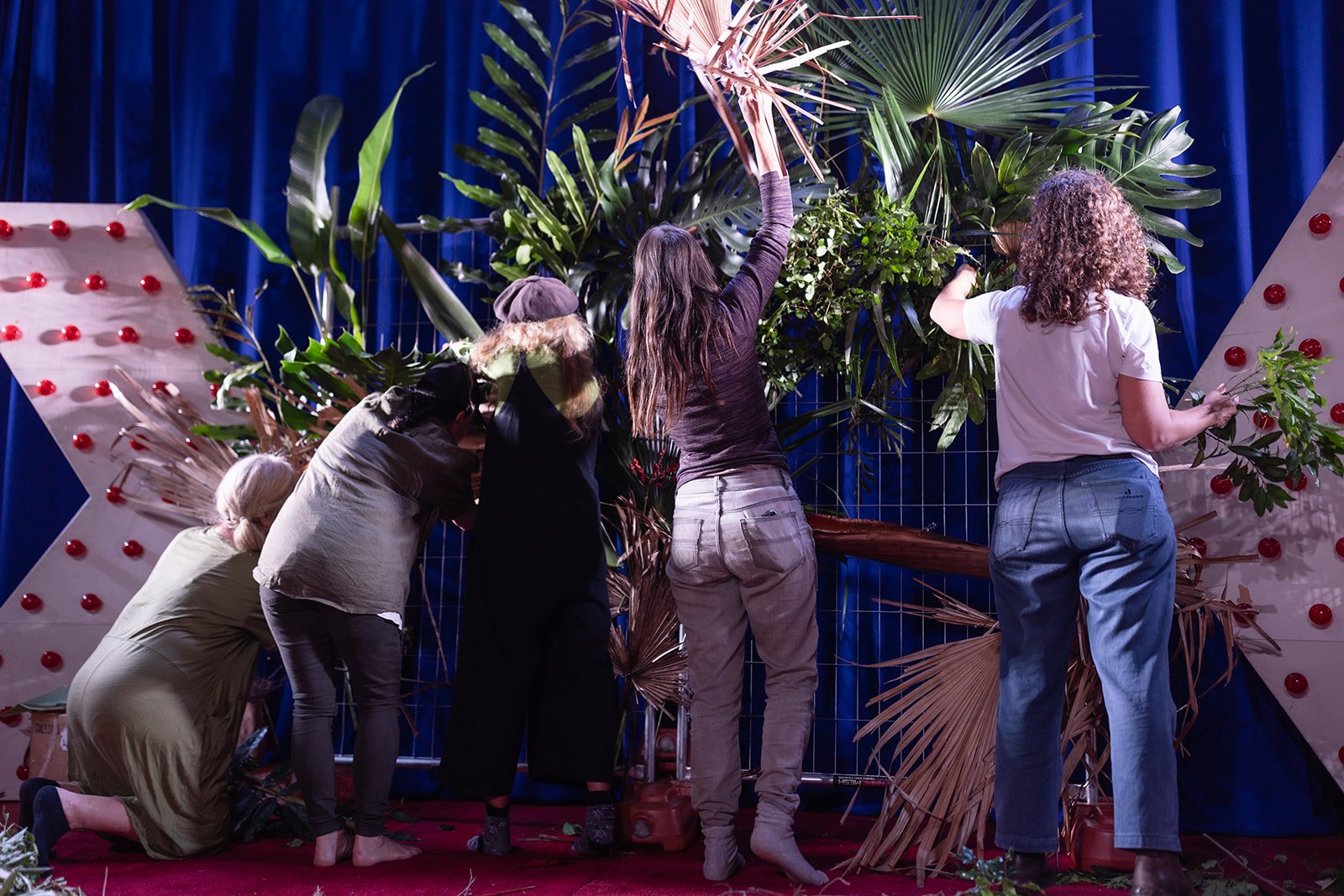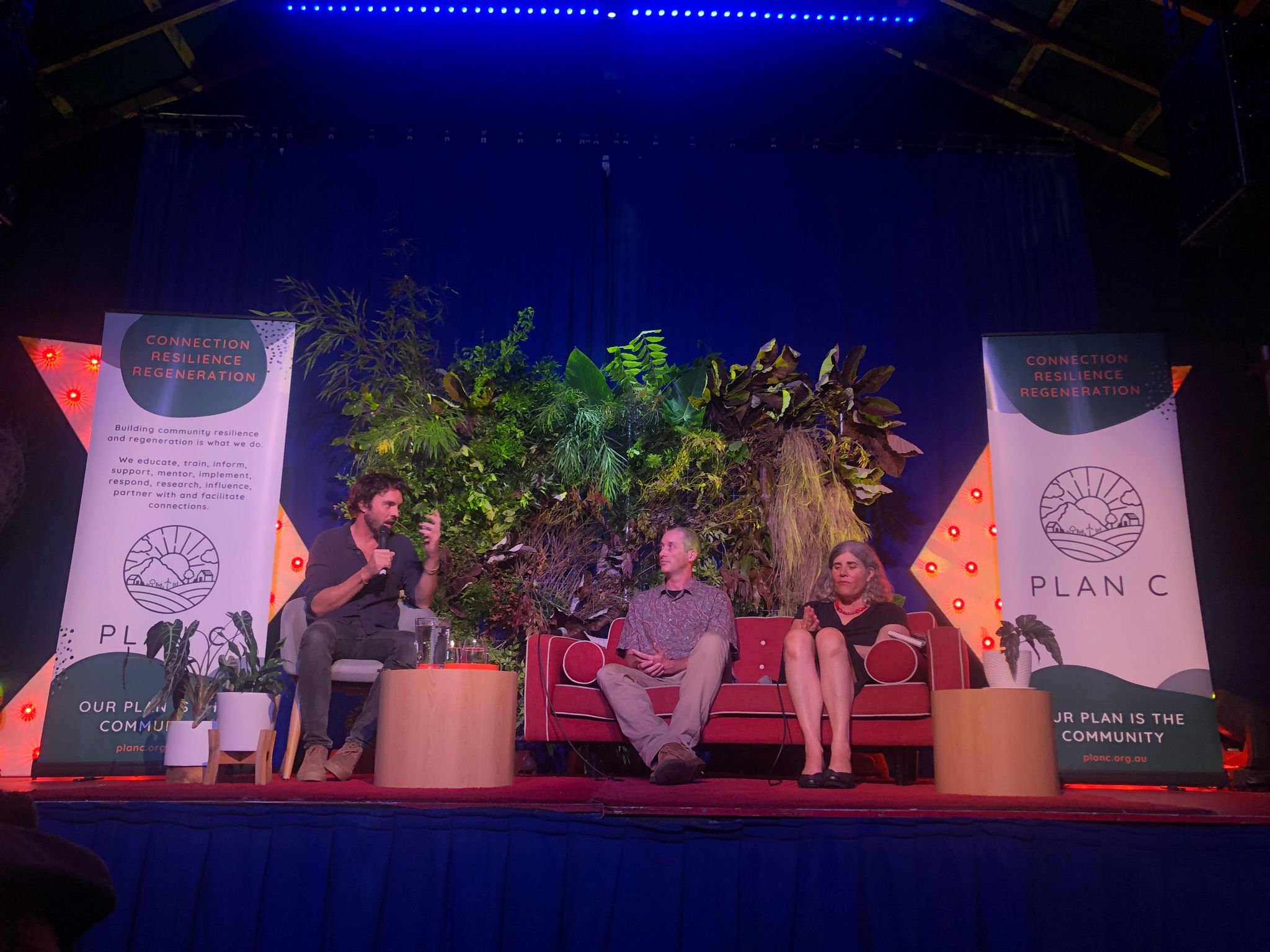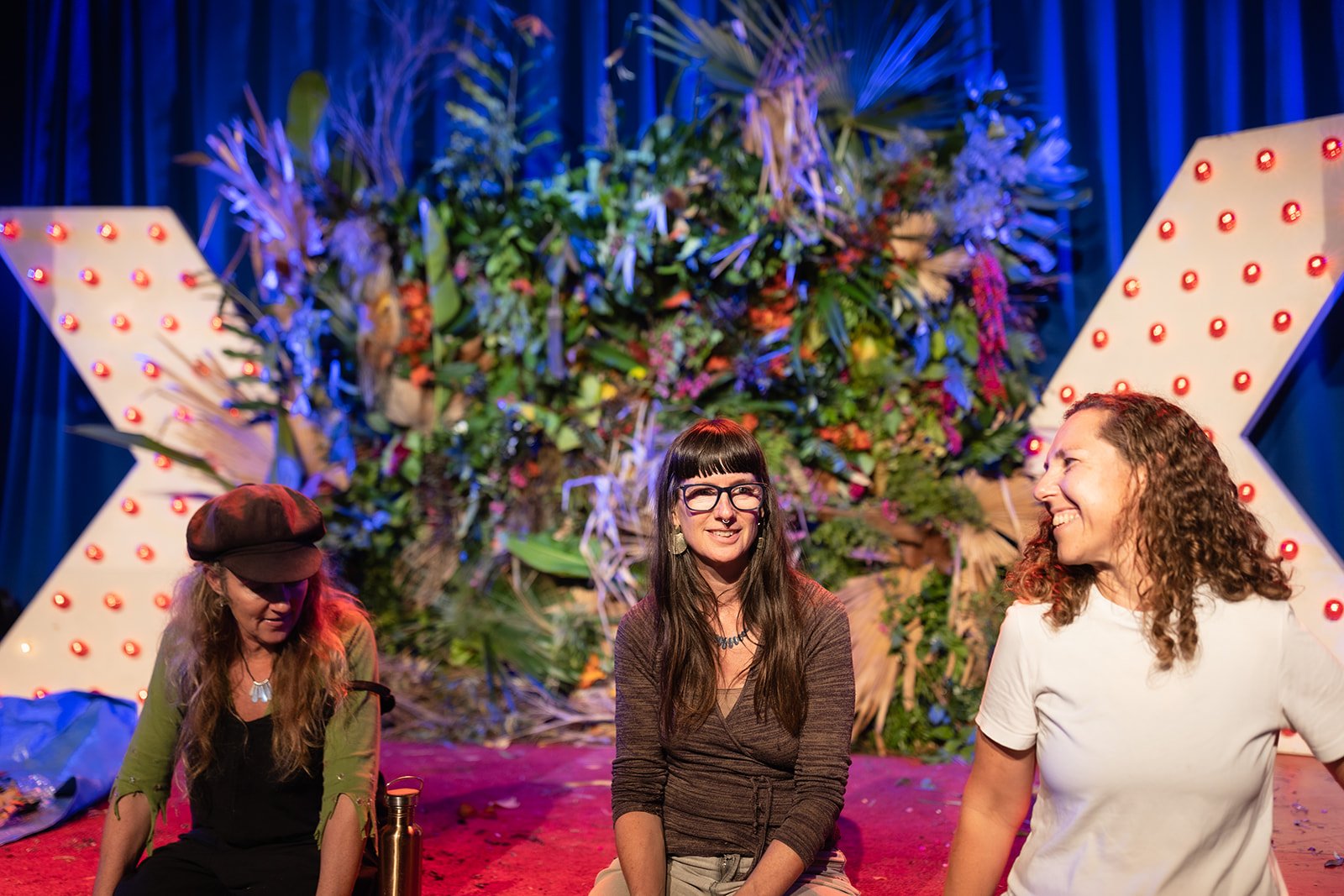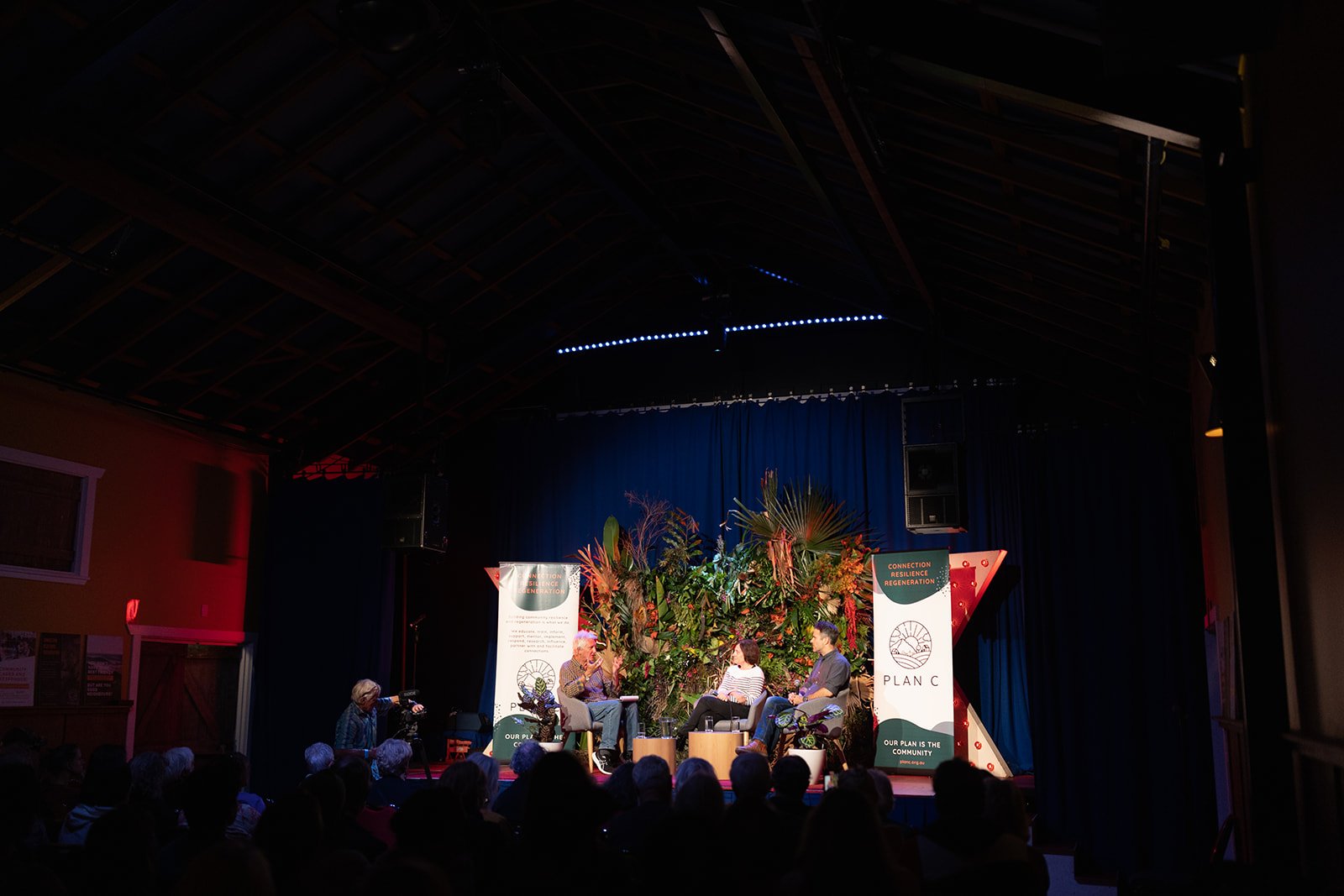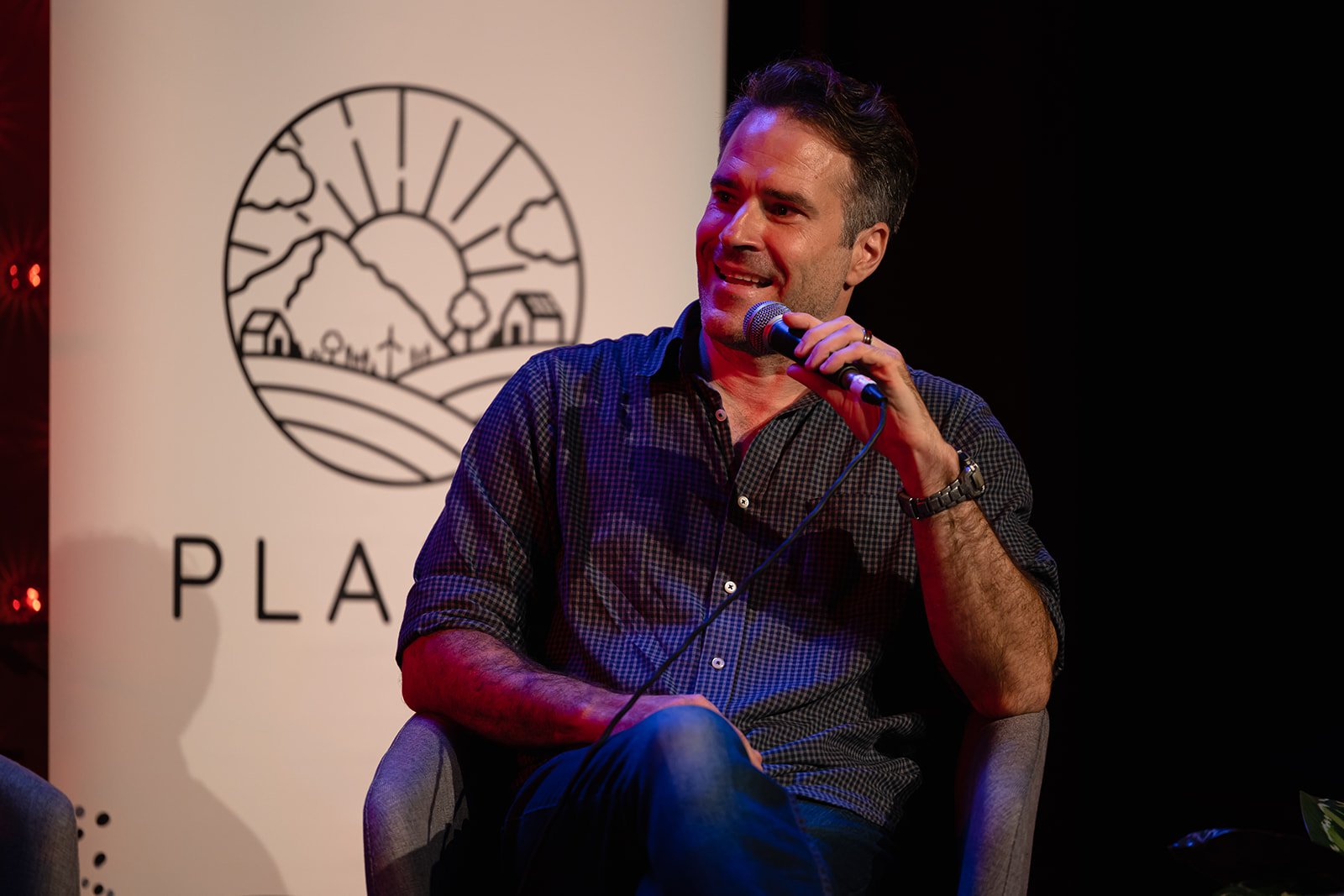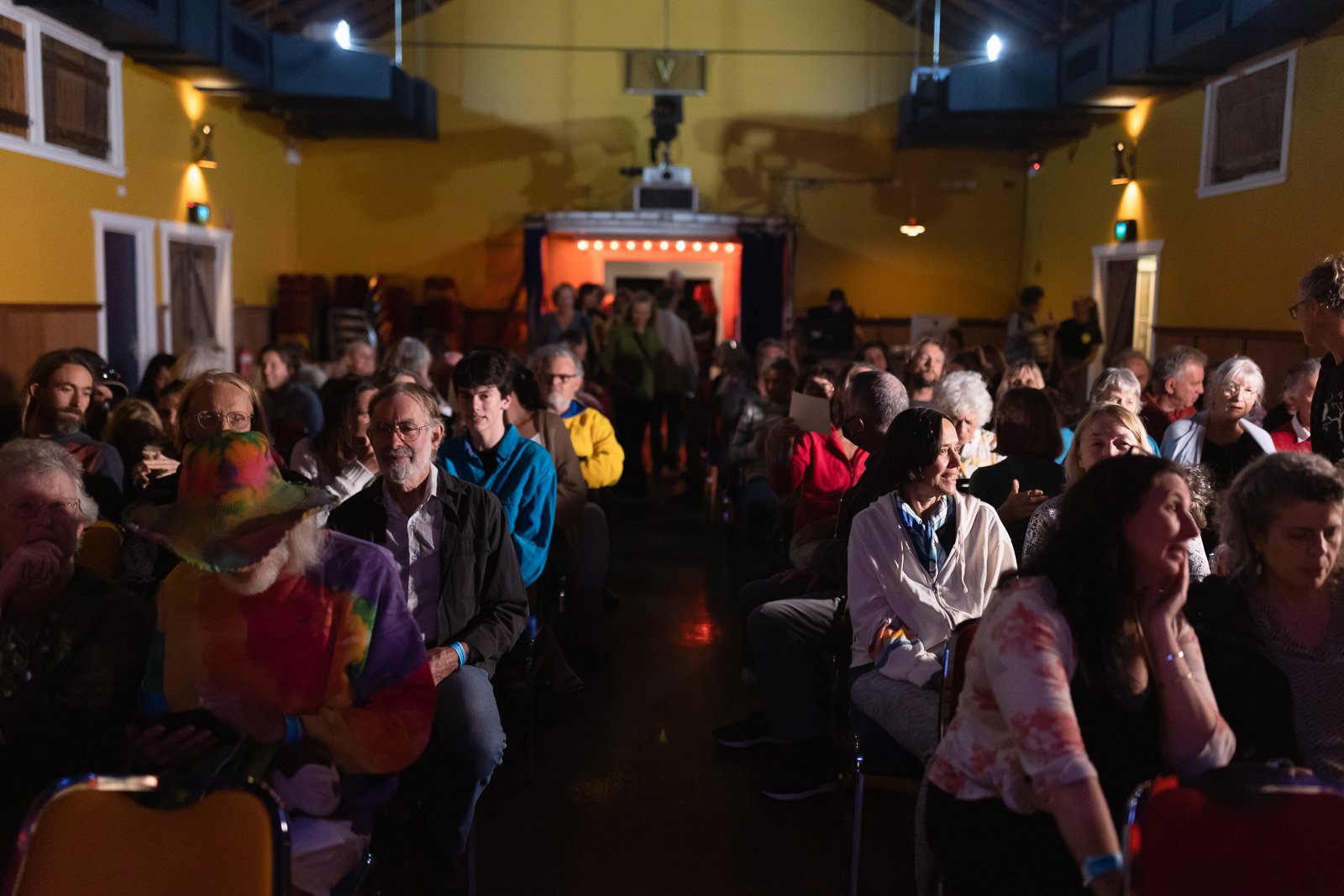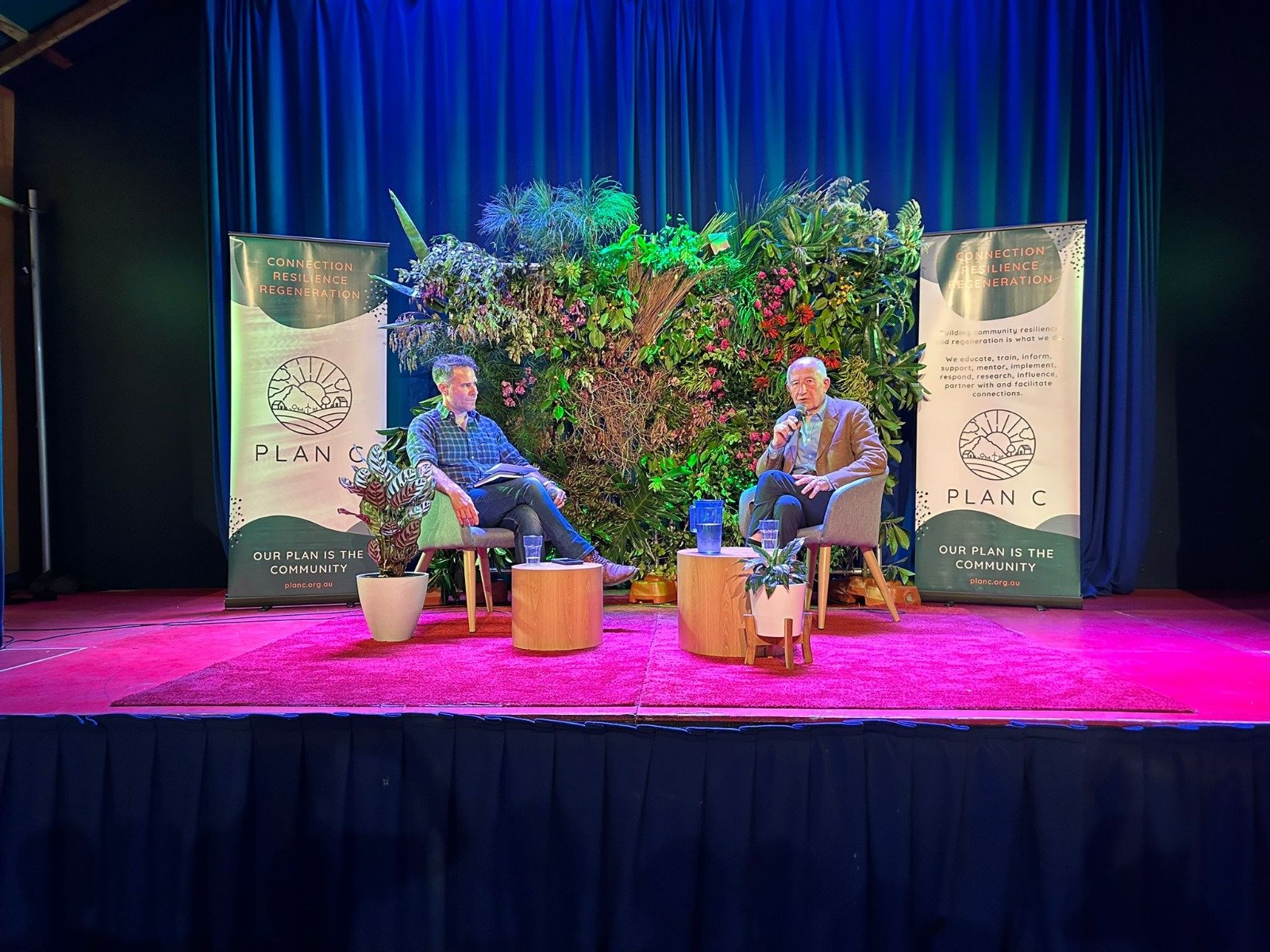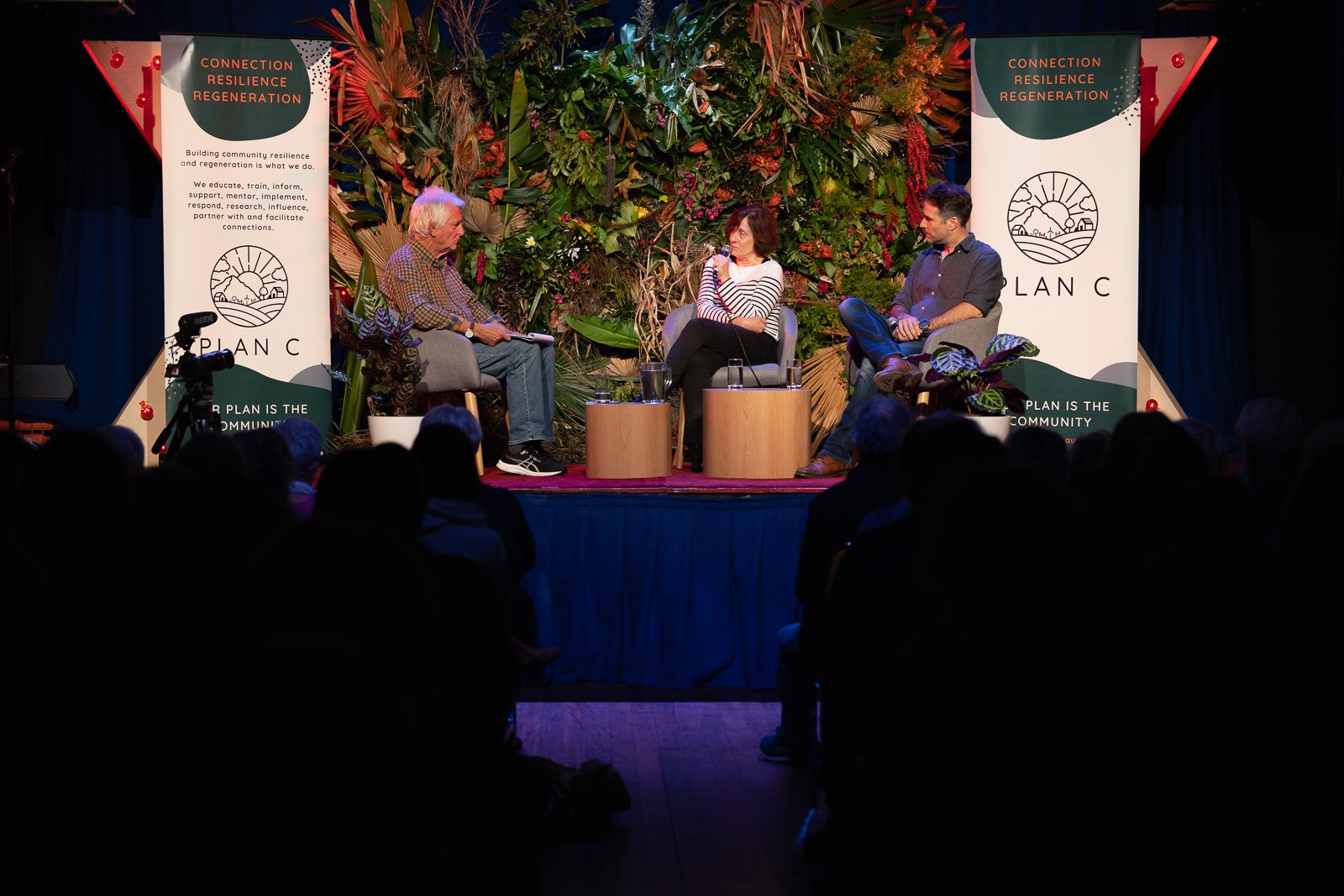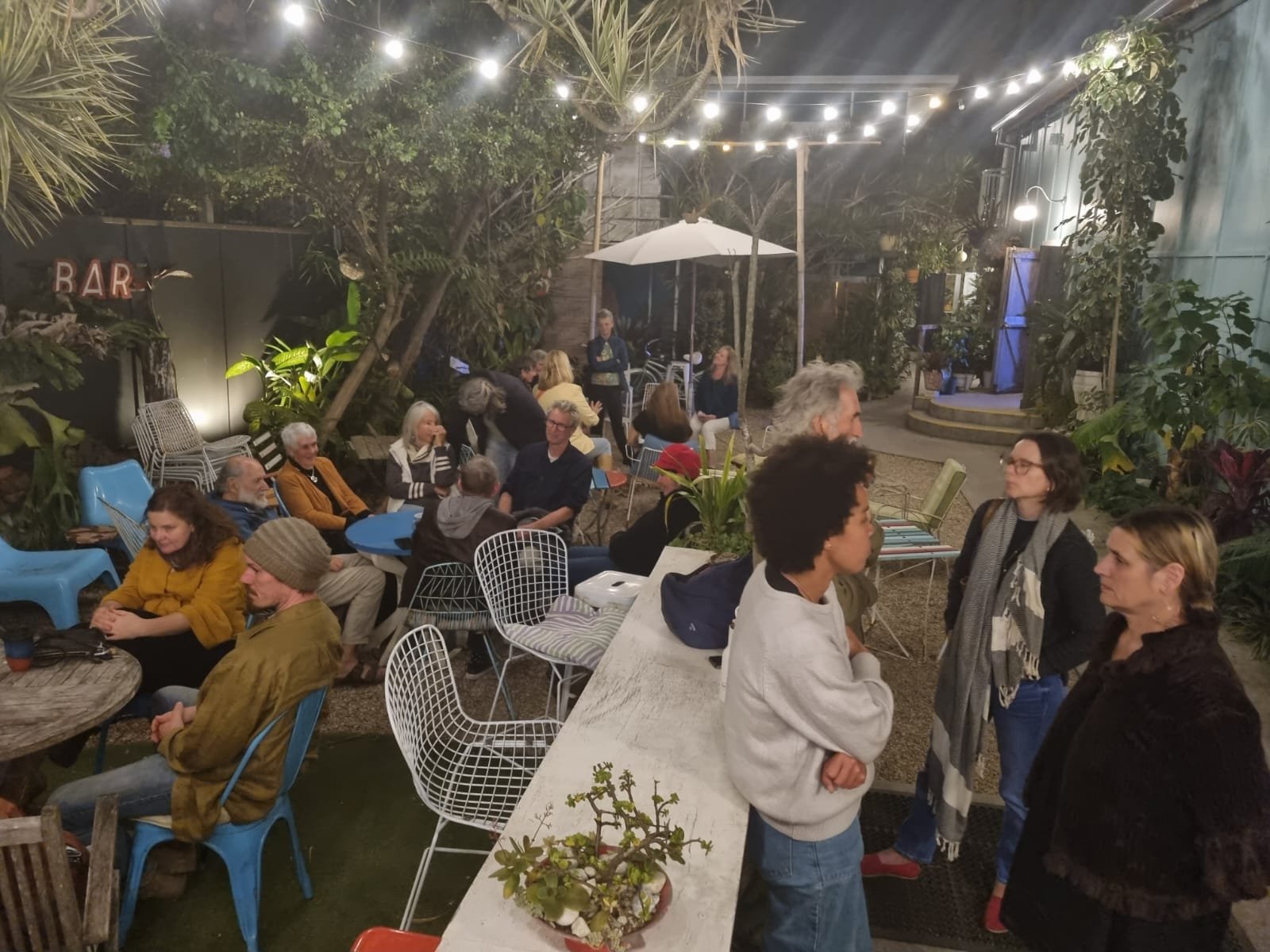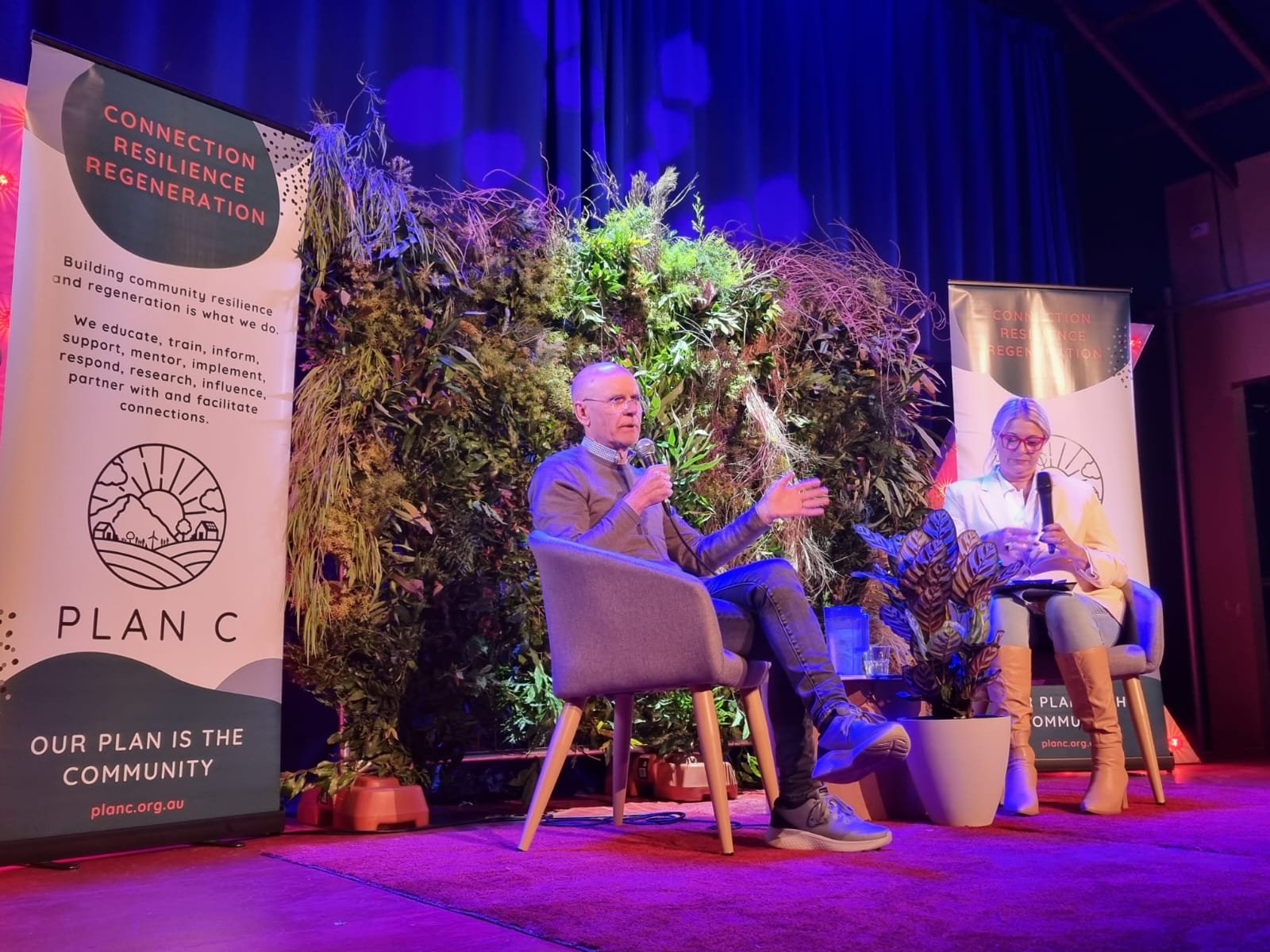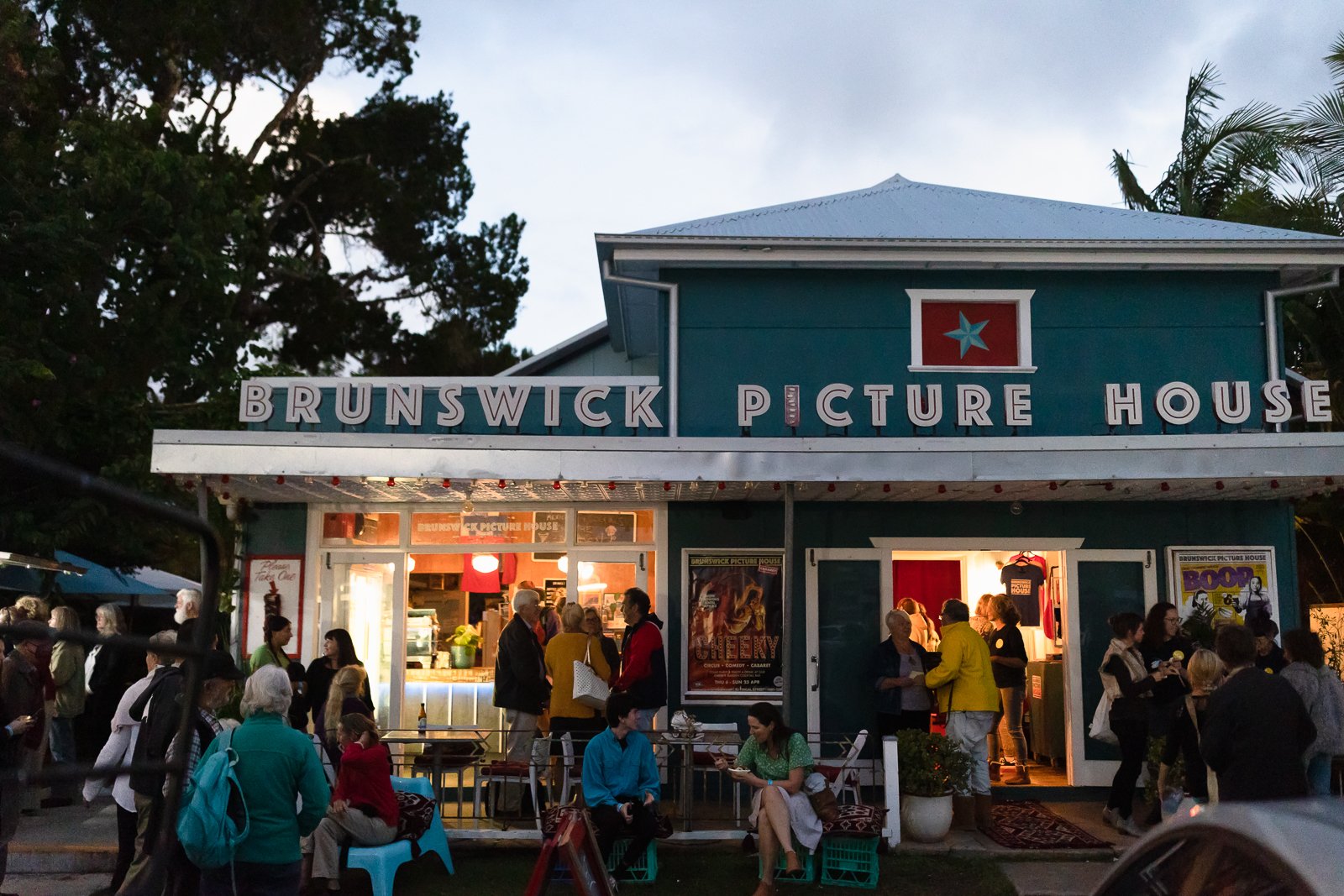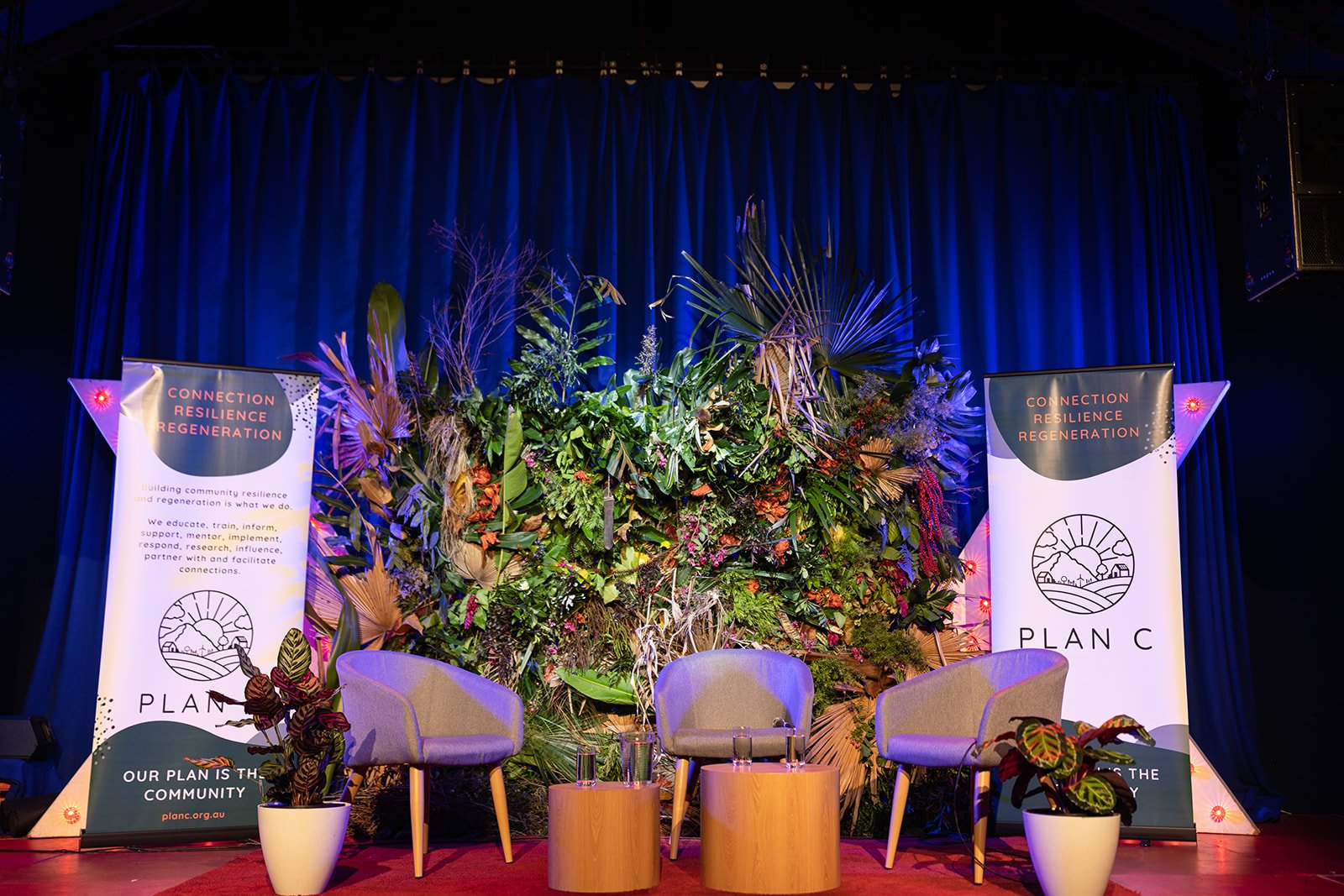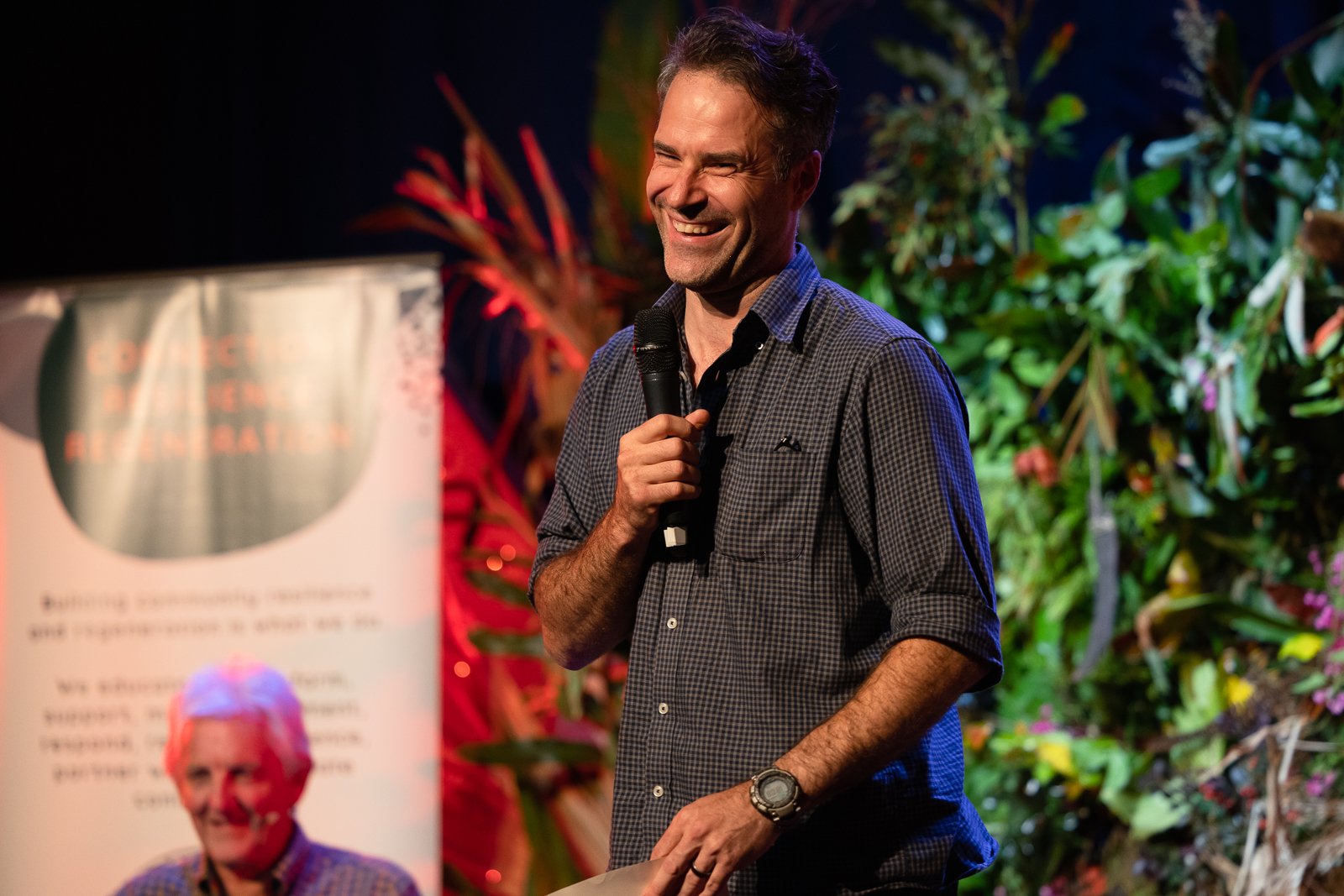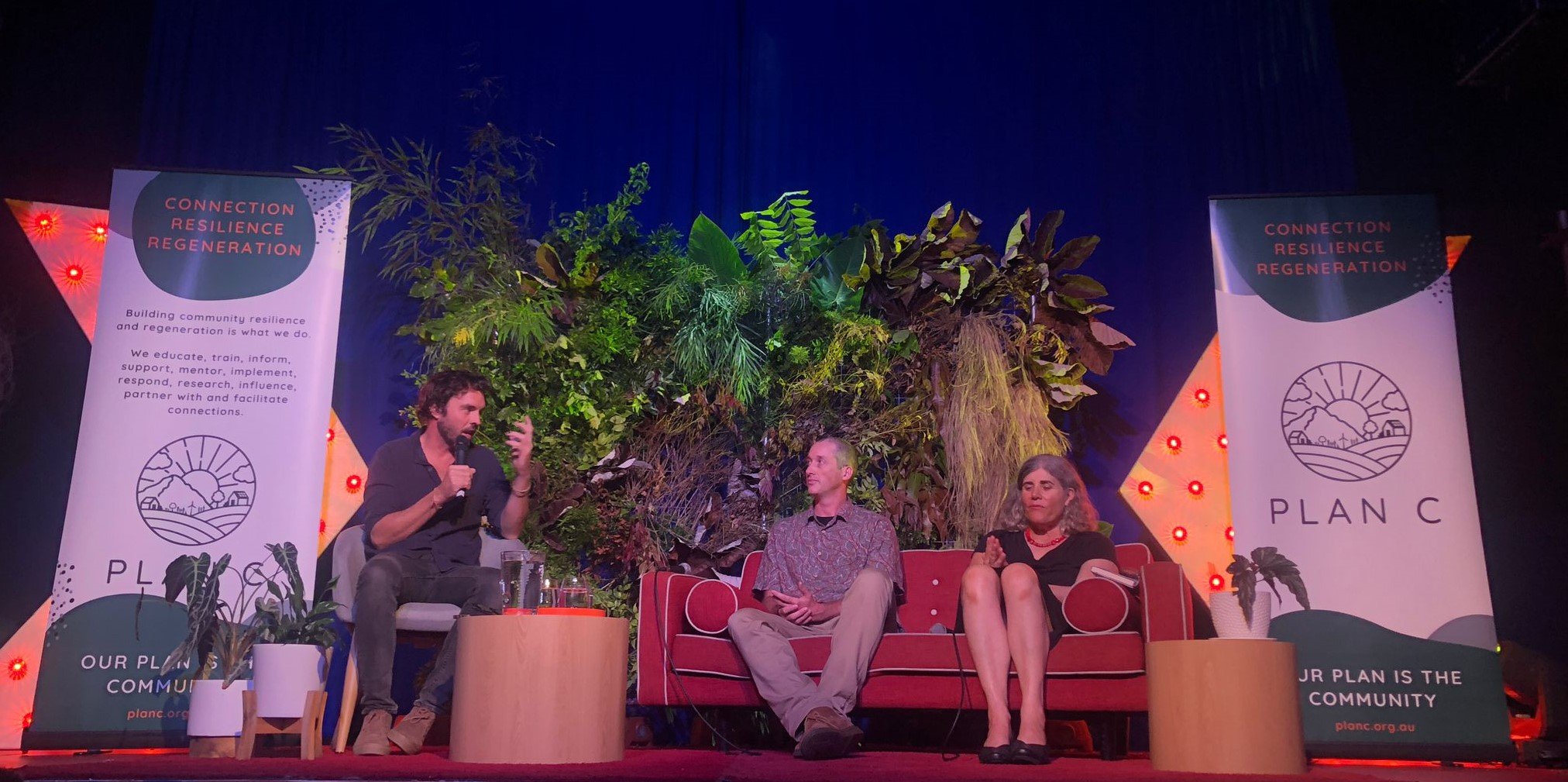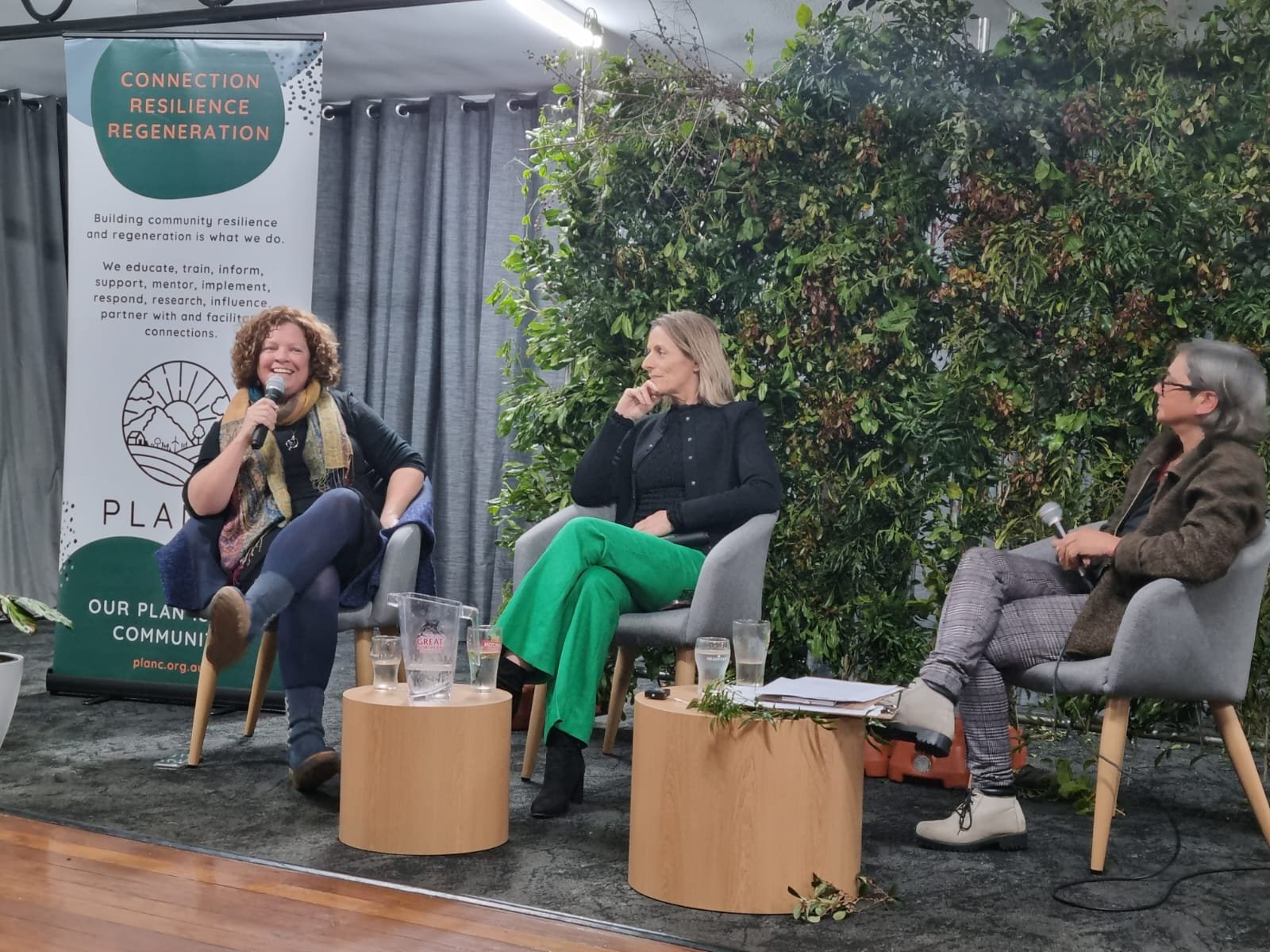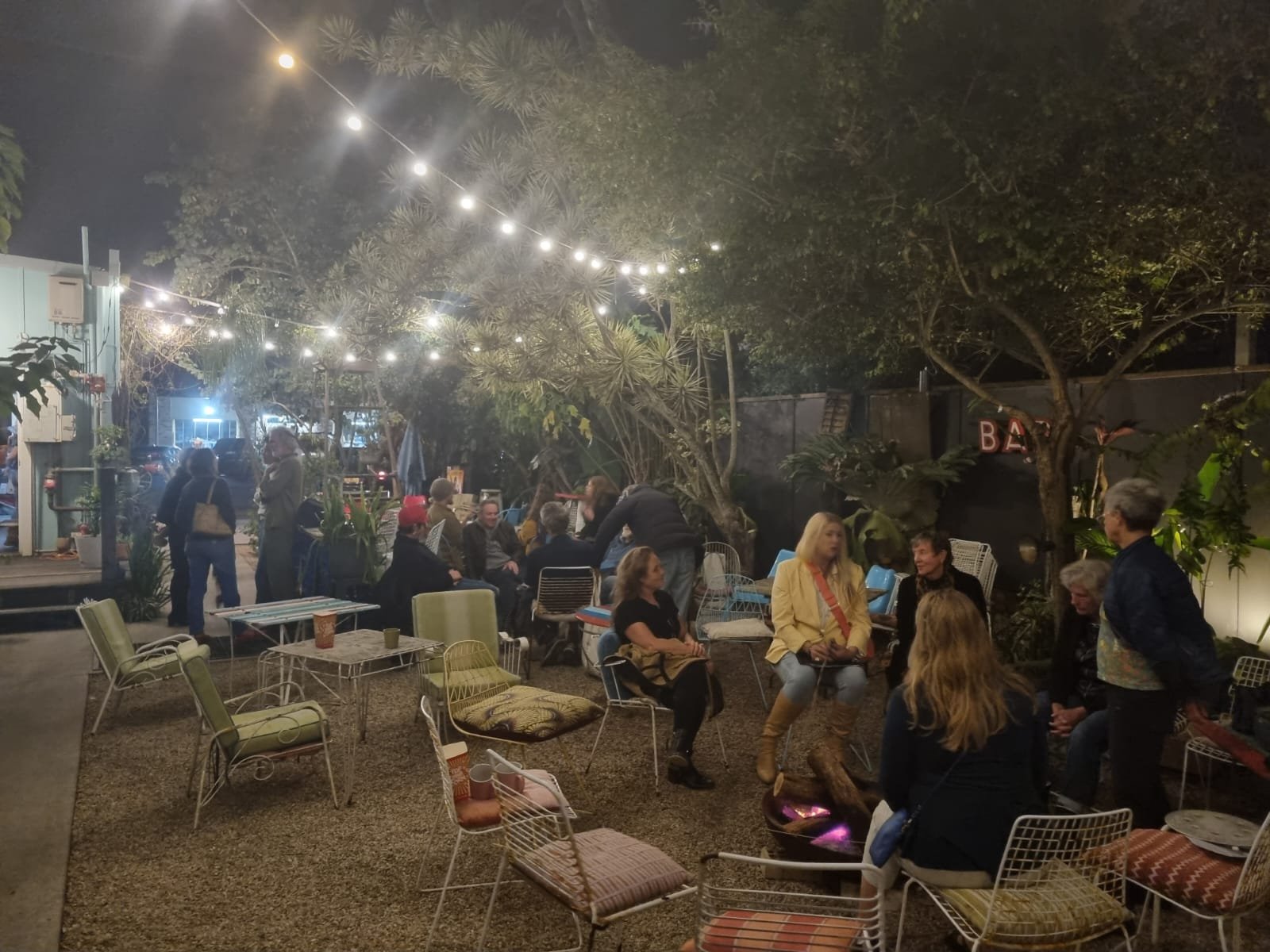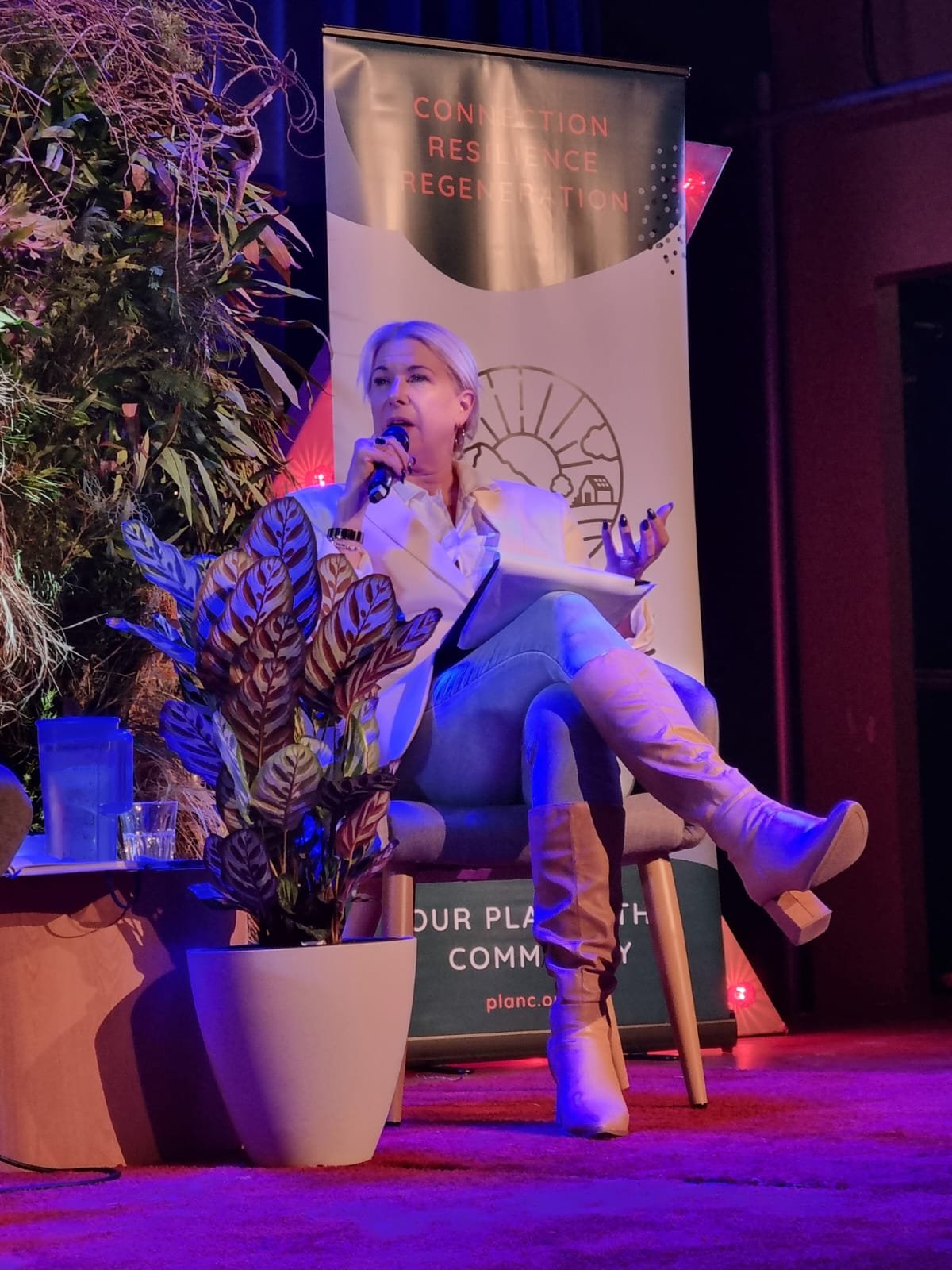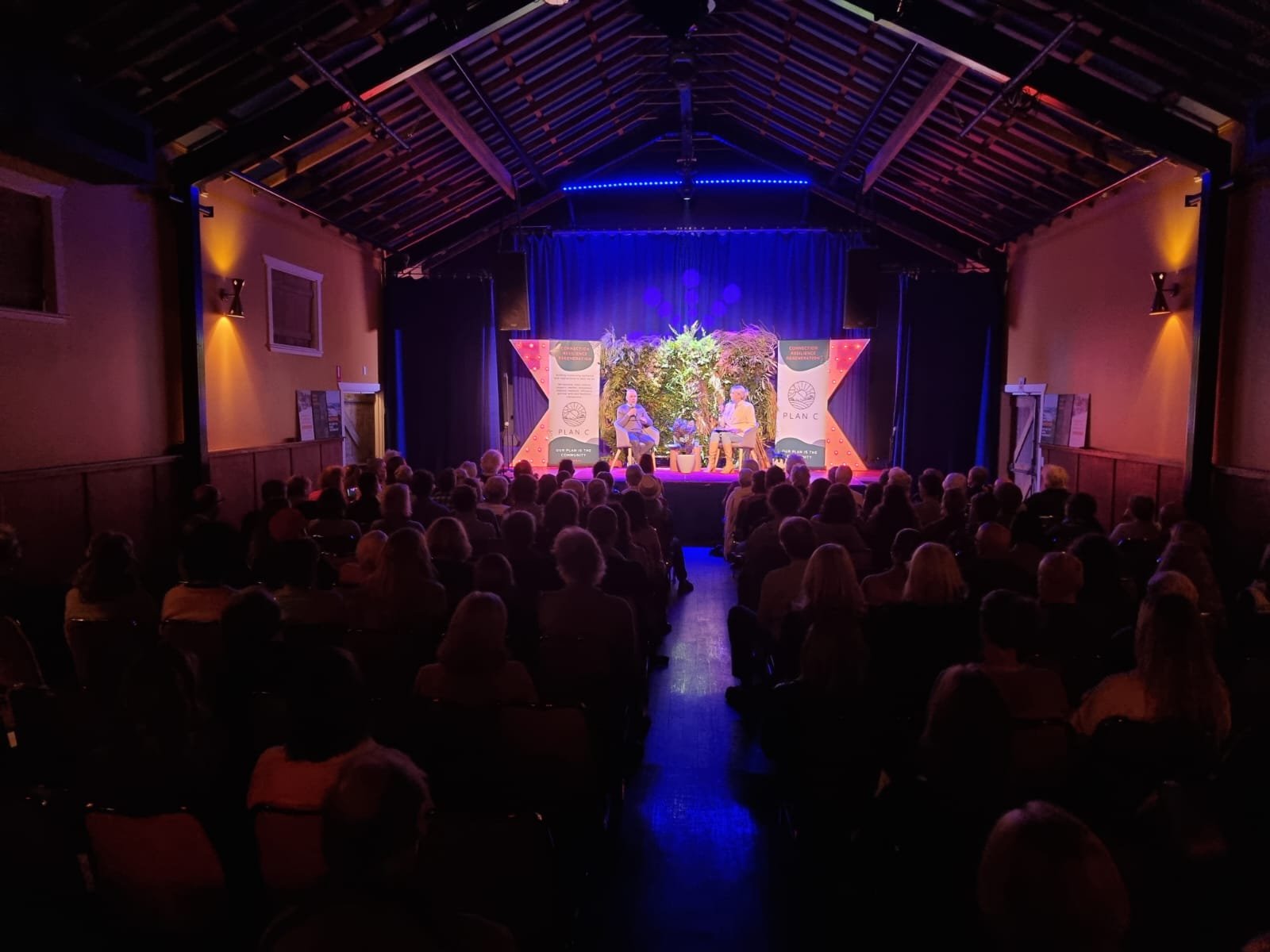Facing Up: how do we live in the midst of the climate and ecological crises?
Facing Up was a series of trauma-informed conversations that focuses on the social, economic, cultural, political, emotional and spiritual consequences of the ecological crisis.
In a series of public conversations, held monthly from March to November 2023, some of Australia’s leading thinkers consider our place in a rapidly transformed world, and how we might think, feel and act in ways that are grounded, empowering and life-affirming.
Our starting point was an acceptance of the prevailing scientific evidence on the climate predicament and destruction of biodiversity. As we’re all aware, this predicament points to an extremely precarious future for all planetary species. Inevitably, we will have to face up to many pressing questions:
How and where are we to live in such circumstances?
How do we deal with troubling emotions?
What will future communities look like?
What forms will power and politics take?
What will climate activism look like?
What role do racial justice and gender equity play in all this?
What can we learn from Indigenous cultures?
The Facing Up sessions were held every last Wednesday of the month, from March to November, alternating between the Brunswick Picture House, the Regent Theatre in Murwillumbah and the Bowling club in Lismore.
Community joined us and learnt how we can grow our acceptance and strength to support each other in this period of significant change. And ultimately Face Up to the challenges ahead.
If you couldn’t make it to one of these events, you can listen below.
Afterwards, you may want to debrief with family or friends. Connection heals and we strongly encourage you to share your thoughts with your loved ones. For anyone struggling to find that connection right now, we want to remind you that there are always people ready to listen. If you need a listening ear, free counselling services are available. Here's a list of free services available locally.
Alternatively, you may be interested in joining a Climate Support Group. You can find more information and sign up for those here.
Prof Nicole Rogers is a Professor of climate law. For nearly three decades, she was a founding member of the School of Law and Justice at Southern Cross University, a pioneering regional law school with a focus upon environmental and social justice. Nicole’s research is in the areas of wild law and interdisciplinary climate studies. In 2014, she instigated the Wild Law Judgment project. She is co-editor of Law as if Earth Really Mattered: The Wild Law Judgment Project. Nicole’s research monograph, Law, Fiction and Activism in a Time of Climate Change, was shortlisted for the international 2020 Hart-SLSA book prize and the 2020 inaugural Australian Legal Research Book Award. Her most recent book, Law, Climate Emergency and the Australian Megafires, was published by Routledge in 2021. She is currently co-leading an interdisciplinary critical judgments project, the Anthropocene Judgments project, in which participants are writing the judgments of the future.
Oliver Costello is a Bundjalung from the Northern Rivers of NSW and has been actively engaged in Cultural Land Management projects with many Aboriginal communities across Australia. He believes strongly in the role of Aboriginal culture as a keystone to maintaining livelihoods, supporting identity, connection to country and enabling healthy and regenerative communities to care for country. He is a founding Director and CEO of the Firesticks Alliance Indigenous Corporation and a visiting fellow at Jumbunna Institute for Indigenous Education and Research at the University of Technology Sydney. He has a broad range of experience in Cultural fire practices, Aboriginal Joint Management partnerships, Culturally significant and threatened species management and Natural Cultural Resource management. He is passionate about Indigenous leadership, empowerment, partnerships and recognition of cultural knowledge and practice through community led mentorship on Country.
Damon Gameau is an actor, director, and producer, known for his documentaries That Sugar Film and 2040. He was recently nominated for NSW Australian of the Year for his work in 'the Regeneration' movement. His '2040' documentary included an extensive impact campaign that has seen 1.5 million students be taught the curriculum materials, hundreds of farmers receive assistance to switch to regenerative practices plus the building of the first seaweed platform in Tasmania. His current film is called Regenerate Australia 2030 and is a vision for Australia in 2030 based on interviews with a variety of Australians from differing backgrounds.
Prof Lesley Hughes is an academic and climate scientist. She is a Distinguished Professor of Biology and Pro Vice-Chancellor (Research Integrity and Development) at Macquarie University. She is also Director, Biodiversity Node, at the NSW Office of Environment & Heritage Climate Adaptation Research Hub and a Councillor at the independent Climate Council. From 2011 to 2013, she was a Commissioner of the Australian Government’s Climate Commission. She was one of five Australian Lead Authors who worked on the Intergovernmental Panel on Climate Change (IPCC) Fourth & Fifth Assessment Reports in 2007. She works at the Centre for Smart Green Cities. Upon accepting her Leadership award in 2019, Hughes spoke on having hope and optimism in the face of climate change. Reasons included "Money, technology, the law, governments, people power, and kids'.
Dr Jean Renouf is the founder and Chair of the community resilience-building charity Plan C (“Our plan is the community”), the CEO of Safer Future, an online platform that helps individuals prepare for future crises from a place of deep peace, a lecturer at Southern Cross University, and a firefighter with Fire and Rescue NSW. He is the recipient of the Australian National Emergency Medal and an NSW Premier Citation for his work during the 2019-2020 bushfires. Before this, Dr Renouf spent 15 years working as an international aid worker in war zones and natural disasters, including Afghanistan, the Central African Republic, Congo, Haiti, Iraq, North Korea, the Occupied Palestinian Territories and more. He has published several academic and non-academic papers, all focusing on catastrophic disruptions and ways forward. Dr Renouf is also an avid mindfulness practitioner, nature-lover and dad of two young boys. All of this informs his interest in climate action, community regeneration, resilience, and deep peace.
Dr Richard Hil is Adjunct Professor, School of Health Sciences and Social Work, Griffith University (Gold Coast Campus), and Adjunct Professor, Southern Cross University, Faculty of Business, Law and Arts. Dr Hil has written numerous books on a wide range of contemporary issues, ranging from crime control, institutionalised child abuse, the Iraq conflict and more recently, critiques of the neoliberal university. His most recent book (co-authored with Kirsten Lyons and Fern Thompsett) is Transforming Universities in the Midst of Global Crisis: A University for the Common Good (London: Routledge). Dr Hil is co-founder of Academics for the Public University and Public Universities Australia, former coordinator of the Ngara Institute, member of the editorial collected of Social Alternatives, and currently, board member of community resilience organisation, Plan C.
Cate McQuillen has been bringing life to children's imaginations with Dirt Girl World for over a decade from her home in the Northern Rivers of NSW. From this, she has created early childhood curriculum, dirt girl maths, and supported community programs in indigenous communities and the reef. Cate inspires lasting behaviour change and encourages us all to have the courage to step up too.
Tim Hollo is the executive director of the Green Institute, where he focuses on eco-political philosophy, practice, and policy related to the rights of nature, universal basic income, and participatory democracy. He is a Visiting Fellow at the Sydney Environment Institute at the University of Sydney and author of Living Democracy: An Ecological Manifesto for the End of the World as We know It. He previously served as Communications Director for Australian Greens Leader Christine Milne and has been both a board member and campaigner at Greenpeace Australia Pacific.
Krysta McMah is an organiser for the Australian Youth Climate Coalition, who are building a generation-wide movement of young people leading solutions to the climate crisis, by shifting the power for a clean and just future. They are working for a future grounded in climate justice, where people on the frontlines of climate change can take back power and lead solutions from the ground up.
Prof Clive Hamilton is a respected Australian public intellectual and Professor of Public Ethics whose expertise in climate change, sustainability, and societal trends has made him a leading voice in shaping our future. For 14 years he was the Executive Director of The Australia Institute, a progressive think tank he founded. He has published on a wide range of subjects but is best known for his books: They include Growth Fetish, Affluenza, Silencing Dissent, Requiem for a Species: Why we resist the truth about climate change, What Do We Want? The story of protest in Australia, Defiant Earth: The fate of humans in the Anthropocene, Silent Invasion: China’s Influence in Australia, Hidden Hand: Exposing How the Chinese Communist Party is Reshaping the World and in 2022, Clive’s memoir was published by Hardie Grant as Provocateur: A Life of Ideas in Action. In 2009 Clive was made a Member of the Order of Australia (AM) for his contribution to public debate and public policy. Later that year he was the Greens candidate in the by-election for the federal seat of Higgins. In 2012 he was appointed by the Federal Government to the Climate Change Authority, from which he resigned in 2016.
Joining him on stage was our adored local comedian and politician, Mandy Nolan. With her wit, insights, and deep understanding of the important issues of our time, Mandy added a unique touch to the evening.
Elly Bird is a dedicated Lismore City Councilor and a driving force behind Resilient Lismore. With over 20 years of experience in grassroots community development, she is passionate about social justice and bridging the gap between community and government.
Sue Higginson is a NSW MP and the former CEO of the Environmental Defenders Office. She is dedicated to protecting native forests and promoting social and environmental justice. With extensive experience in the environmental movement and public interest law, she fights against harmful government decisions and defends activists' rights.
Ruth Rosenhek is a psychotherapist and the project manager at the Healing Hub. She is a compassionate support for people dealing with life transitions, anxiety, depression, trauma, and stress. She has a long history of environmental and social justice activism.

